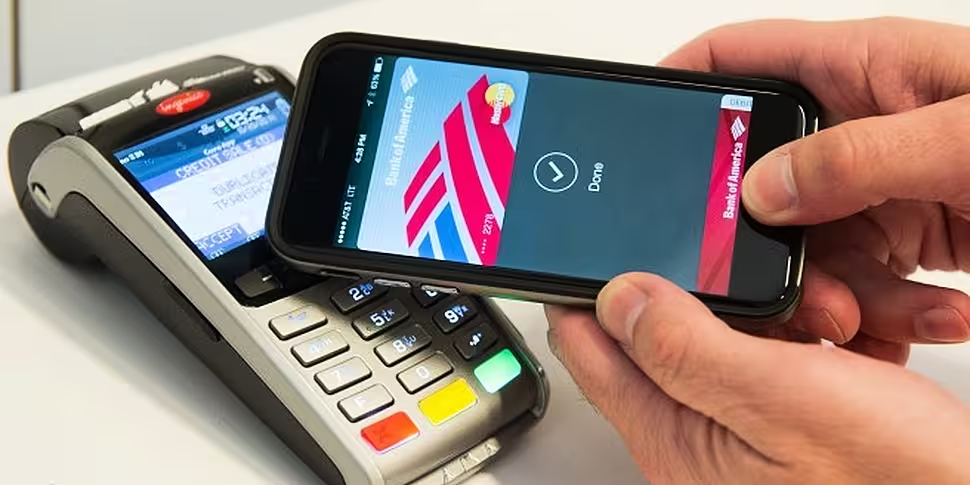Apple Pay has landed in Ireland, over two years after its initial launch.
It means you can now pay for goods with your iPhone or Apple Watch in thousands of retail outlets across the country.
The first banks to sign up to the service directly are Ulster Bank and KBC. Customers of other banks can still avail of the service, however, through pre-paid virtual Boon cards, which can be used to fund Apple Pay purchases.
Your swipe should work almost anywhere that ordinary contactless credit and debit cards can be used, though you will need an iPhone 6 or more recent model. Apple Watches, newer iPads and MacBooks after 2012 can also be used. There will be no additional charge for using your device, while purchasing limits are the same as those of contactless cards.
The likes of Applegreen, Boots, Centra, Dunnes Stores, Harvey Norman and Marks & Spencer have all signed up as launch partners.

Eddie Dillon, director of innovation at KBC Bank Ireland, said:
“At KBC we pride ourselves on digital innovation and we are thrilled to be one of the first banks in Ireland to offer Apple Pay. This development enhances our €100 million multi-year investment plan in digital channels, banking systems and physical presence in Ireland.
"As Ireland has the largest mobile penetration in Europe, KBC will continue to offer our customers the best in class digital solutions as we evolve into a digital first customer-centric bank.
“We were the first bank in Ireland with mobile current account openings and now customers can pay for goods worldwide anywhere contactless payments are accepted by simply using their mobile phone.”
Maeve McMahon, Ulster Bank’s director of customer experience and products, said:
"It’s part of our customer-centric innovation strategy. In terms of our number, the customer numbers using mobile banking services is up 22% in 2016 over 2015. The way people are banking is changing."
Apple has stressed not only the service's ease-of-use but its secure and private nature. Apple Pay employs multiple layers of security in both hardware and software to prevent details becoming compromised. It is also protected with your device's password or Touch ID fingerprint reader.
Meanwhile, 'Find My iPhone' allows you to remotely remove a card if your phone is lost or stolen.
Speaking at the October 2014 launch of the service, Apple's senior vice president of internet software and services Eddy Cue said:
"Security and privacy is at the core of Apple Pay. When you’re using Apple Pay in a store, restaurant or other merchant, cashiers will no longer see your name, credit card number or security code, helping to reduce the potential for fraud.
"Apple doesn’t collect your purchase history, so we don’t know what you bought, where you bought it or how much you paid for it."
When you add a credit or debit card with Apple Pay, the actual card numbers are not stored on the device nor on Apple servers. Instead, a unique Device Account Number is assigned, encrypted and securely stored in the Secure Element on your iPhone or Apple Watch.
Each transaction is authorised with a one-time unique number using your Device Account Number and instead of using the security code from the back of your card, Apple Pay creates a dynamic security code to securely validate each transaction.

Apple Pay's arrival comes mere months after the launch of Android Pay on these shores, with AIB and KBC signing up for Google's digital wallet platform in December.









